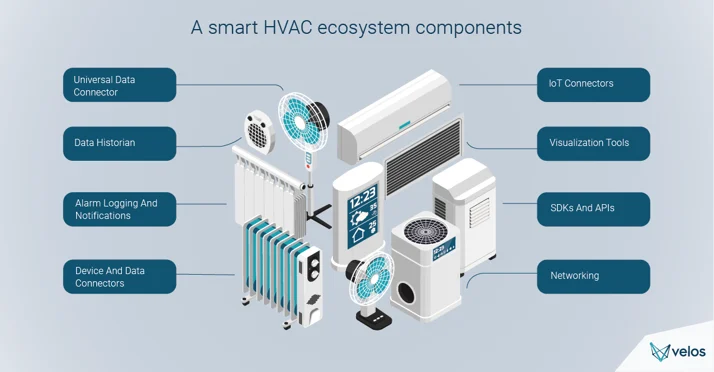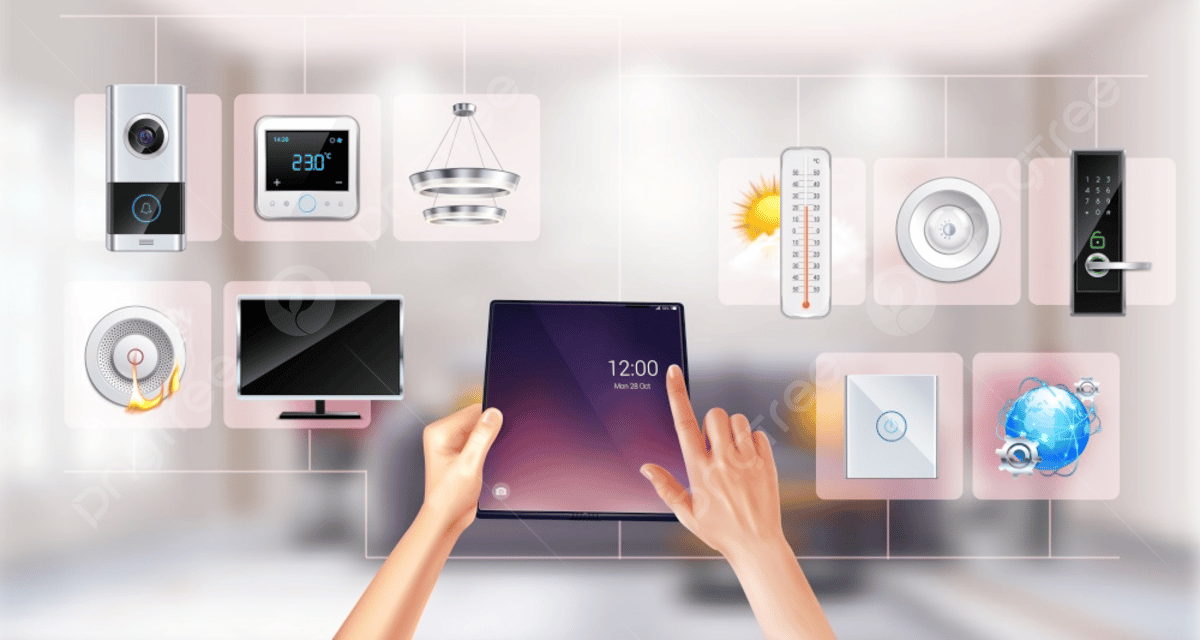
The Future of Home Heating and Cooling: Innovations in HVAC Technology
Discover the cutting-edge HVAC technologies transforming home comfort and energy efficiency.Imagine walking into your home on a sweltering summer day, and before you even reach for the thermostat, you feel a cool breeze welcoming you. Your smart home has already adjusted the temperature, knowing your usual arrival time and preferred settings. This isn't science fiction – it's the cutting-edge reality of HVAC technology that's transforming our living spaces.
As someone who's been in the HVAC industry for years, I've seen firsthand how rapidly this field is evolving. We've come a long way from huddling around fireplaces or relying on clunky window units. Today's HVAC systems are marvels of engineering, blending energy efficiency with unprecedented comfort. And trust me, the future looks even cooler – pun intended!

The Evolution of HVAC: From Fireplaces to AI
Let's take a quick trip down memory lane. We started with open fires, moved to coal furnaces, then to central heating and air conditioning. Each step brought more comfort but also increased energy consumption. Now, we're entering an era where our HVAC systems are not just more efficient, but smarter too.
Why does this matter? Well, for starters, heating and cooling account for nearly half of a home's energy use[1]. With climate change concerns and rising energy costs, innovation in this field isn't just nice to have – it's crucial.
Geothermal Heat Pumps: Tapping into Earth's Thermostat
One of the most exciting developments I've seen is the rise of geothermal heat pumps. Think of these as using the Earth as a giant heat sink – or source, depending on the season. These systems tap into the constant temperature underground to heat or cool your home.
The benefits? They're incredibly efficient, eco-friendly, and can slash your energy bills. I've seen homeowners reduce their heating and cooling costs by up to 65%[2]. The downside? Installation can be pricey and requires some yard space. But for many, the long-term savings make it worthwhile.
Smart Climate Control: Your Home's Brain
Remember when programming your thermostat felt like decoding the Matrix? Those days are gone. Modern smart thermostats are like having a tiny HVAC expert living in your wall. They learn your preferences, adjust based on your schedule, and can even detect when you're away.
But it gets better. AI and machine learning are taking this to the next level. Imagine a system that can predict when you'll be home based on your smartphone's location, or adjust humidity levels based on weather forecasts. I recently visited a home where the HVAC system was integrated with the lighting and security – it felt like I was stepping into Tony Stark's mansion!

Ductless Mini-Split Systems: Zoning Made Easy
For years, I've been recommending ductless mini-splits for older homes or additions. These systems allow you to heat or cool specific areas independently. No more fighting over the thermostat or wasting energy on empty rooms!
They're incredibly efficient and perfect for retrofitting older buildings without the hassle of installing ductwork. Plus, they're quieter than your average library.
Solar-Powered HVAC: Harnessing the Sun's Power
Solar technology isn't just for generating electricity anymore. We're seeing more HVAC systems that integrate solar power, either to run the entire system or to supplement traditional power sources. It's like your roof is working overtime – keeping you cool while also powering the AC!
The initial investment can be steep, but the long-term savings are substantial. Plus, there's something satisfying about cooling your home with the very thing that's making it hot in the first place.
Energy Recovery Ventilators: Breathing New Life into Your Home
As homes become more airtight for energy efficiency, indoor air quality can suffer. Enter Energy Recovery Ventilators (ERVs). These clever devices bring in fresh air while expelling stale air, all while transferring heat and moisture to maintain efficiency.
It's like having a set of mechanical lungs for your house, ensuring you're always breathing clean, fresh air without wasting energy.
Radiant Heating and Cooling: Comfort from the Ground Up
Radiant systems, either in-floor or in-ceiling, are changing the game when it comes to even, comfortable heating and cooling. Unlike forced-air systems that can create drafts and uneven temperatures, radiant systems work silently and invisibly to maintain a consistent comfort level.
I once walked into a home with radiant floor heating in the dead of winter, and it felt like a warm summer day. No cold spots, no noisy vents – just pure, enveloping comfort.
Ice-Powered Air Conditioning: Keeping Cool with Frozen Water
Here's a cool concept (sorry, couldn't resist): using ice to power your AC. Some systems create ice during off-peak hours, then use it to cool your home during the day. It's like having a giant, efficient ice pack for your house.
This technology can significantly reduce peak energy demand, which is not only good for your wallet but also for the power grid.
The Internet of Things: Your HVAC System Gets Connected
The Internet of Things (IoT) is revolutionizing home climate control. Connected devices can now communicate with each other and with you, offering unprecedented control and efficiency. Imagine your HVAC system alerting you to potential issues before they become problems, or adjusting based on data from your local weather station.
As an HVAC tech, I'm seeing a shift in the skills required in our field. We're not just dealing with wrenches and refrigerant anymore – now we need to understand IT and data analysis too.
Challenges and Limitations: The Road Ahead
Of course, with all this new technology comes new challenges. There are valid concerns about privacy and cybersecurity when it comes to smart home systems. And let's be real – many of these cutting-edge technologies come with a hefty price tag that puts them out of reach for many homeowners.
But here's the thing: I remember when central AC was a luxury few could afford. As technology advances and becomes more mainstream, prices will come down. It's an exciting time to be in this field, watching science fiction become reality.
The Environmental Impact: Cooling Our Homes, Not the Planet
One of the most important aspects of these innovations is their potential to reduce our environmental impact. More efficient systems mean less energy consumption, which translates to a lower carbon footprint. We're also seeing a shift away from harmful refrigerants to more environmentally friendly alternatives.
Conclusion: The Cool Future of Home Comfort
As we look to the future of home heating and cooling, one thing is clear: the HVAC systems of tomorrow will be smarter, more efficient, and more integrated into our daily lives than ever before. From AI-driven climate control to geothermal systems tapping into the Earth's natural heat, the possibilities are as exciting as they are numerous.
The future of HVAC isn't just about keeping our homes at the right temperature – it's about creating environments that adapt to our needs, save energy, and contribute to a more sustainable world. As someone who's spent years in this industry, I can't wait to see what innovations the next decade brings. Who knows? Maybe one day we'll be able to control the weather inside our homes as easily as we change the channel on our TVs.
So the next time you adjust your thermostat, take a moment to appreciate the incredible technology at work. And remember, the future of home comfort is looking pretty cool indeed.
References
- https://www.motili.com/blog/hvac-innovations/
- https://coolproatlanta.com/emerging-hvac-technologies/
- https://cielowigle.com/blog/hvac-technology/
- https://www.hhmec.com/the-future-of-hvac-technology-trends-and-innovations
- https://www.wired.com/sponsored/story/the-future-of-heating-and-cooling-our-homes/
- https://www.linkedin.com/pulse/revolutionizing-indoor-comfort-evolution-hvac-technology-yqfvc
DIY Home Security Systems: Protecting Your Home on a Budget






Comments
The future of HVAC is looking bright with these innovations. I’m particularly excited about the potential for integrating renewable energy sources directly into home heating and cooling systems.
I’ve been hearing a lot about smart thermostats and zoned heating lately. It seems like a great way to keep our homes comfortable without wasting energy. Anyone here already using these technologies?
The advancements in HVAC technology are really impressive. I’m particularly interested in the energy efficiency gains. It’s exciting to think about how much we can save on heating and cooling costs in the near future.
Leave a Comment